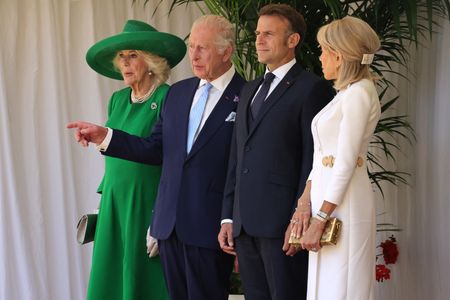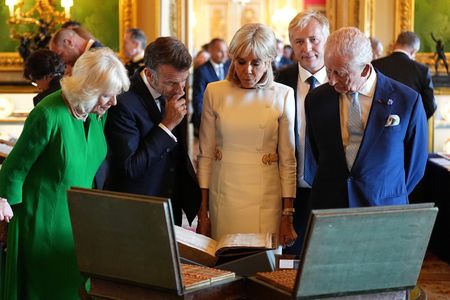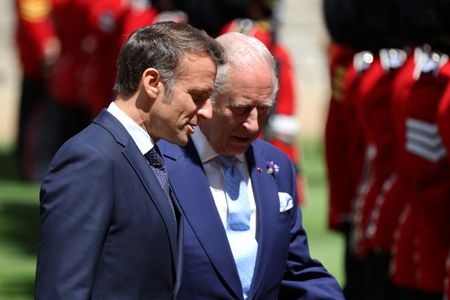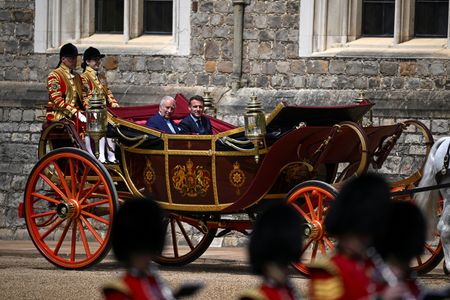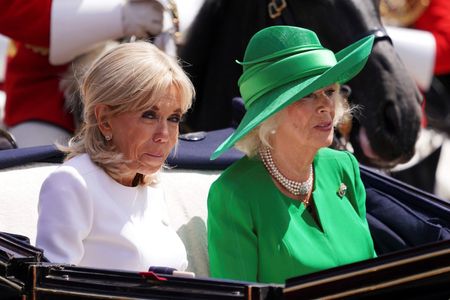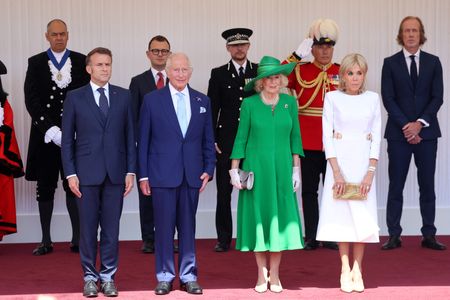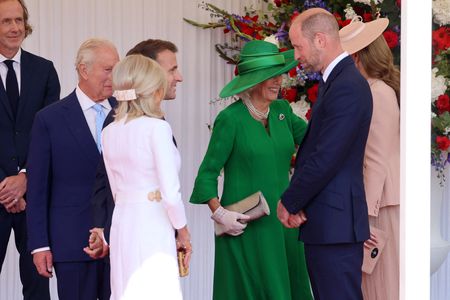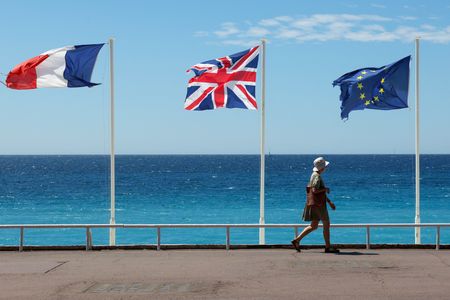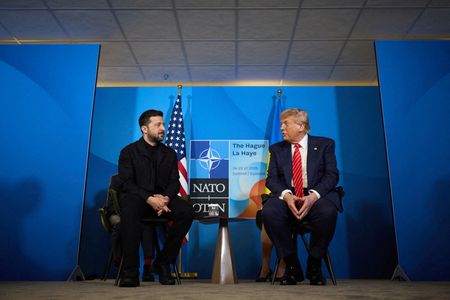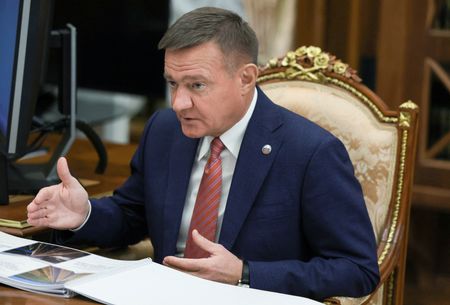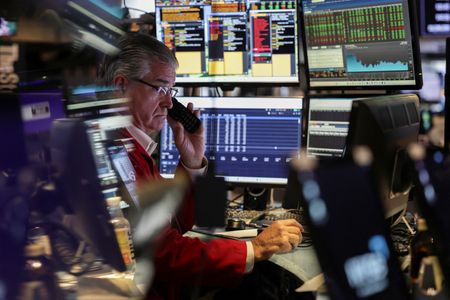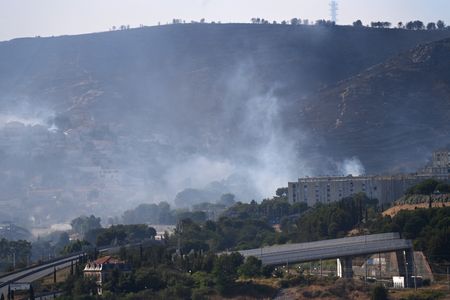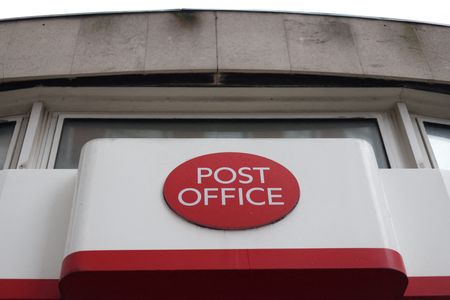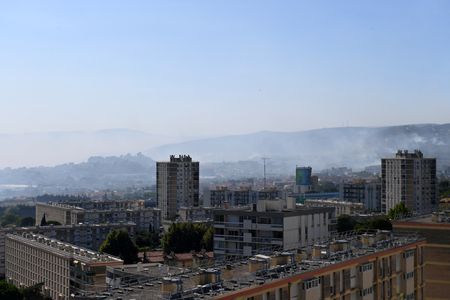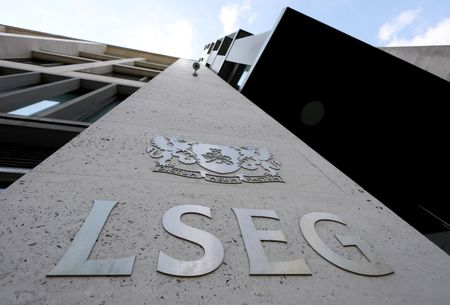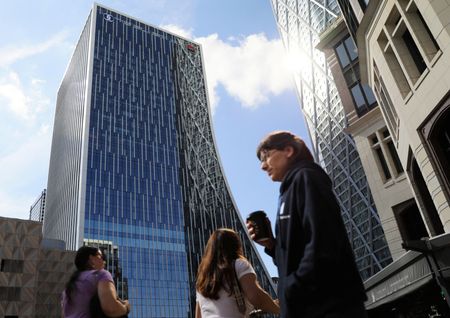By Andrew MacAskill and Alistair Smout
LONDON (Reuters) -French President Emmanuel Macron said on Tuesday Britain and France must work together to counter the world’s many destabilising threats and protect Europe from “excessive dependencies” on the United States and China.
Macron, in a rare address to both houses of the British parliament, celebrated the return of closer ties between the two countries as he became the first European leader to be invited for a British state visit since Brexit.
Having been greeted earlier by the British royal family, Macron set out to parliament where he said the two countries needed to come together to strengthen Europe, including on defence, immigration, climate and trade.
“The United Kingdom and France must once again show the world that our alliance can make all the difference,” he said.
“The only way to overcome the challenges we have, the challenges of our times, will be to go together hand in hand, shoulder to shoulder.”
Listing the geopolitical threats the countries face, Macron argued they should also be wary of the “excessive dependencies of both the U.S. and China,” saying they needed to “de-risk our economies and our societies from this dual dependency.”
But he also set out the opportunities of a closer union, saying they should make it easier for students, researchers and artists to live in each other’s countries, and seek a way to work together on artificial intelligence and protect children online.
The speech symbolised the improvement in relations sought by British Prime Minister Keir Starmer’s centre-left Labour Party, as part of a broader reset of ties with European allies following the rancour that exploded over Britain’s departure from the European Union.
STRONG TIES
Macron, who enjoys a strong personal relationship with King Charles, was earlier greeted by the royal family, including heir-to-the-throne Prince William and his wife Princess Catherine, before they travelled in horse-drawn carriages for a procession in Windsor.
“I have to confess that we love monarchy, but especially when it’s not at home,” he later told parliament.
Charles is also expected to emphasise “the multitude of complex threats” both countries face in a speech he will deliver at a state dinner at Windsor later.
The 76-year-old monarch, who is undergoing treatment for cancer, had a noticeably red right eye when he met Macron. A Buckingham Palace source said he had suffered a burst blood vessel that was unrelated to any other health condition.
Britain and France marked the three-day visit with an announcement that French nuclear energy utility EDF would invest £1.1 billion ($1.5 billion) in a project to build a nuclear power station in eastern England.
The two countries also announced that France would lend Britain the Bayeux Tapestry, allowing the 11th-century masterpiece to return across the Channel for the first time in more than 900 years, in exchange for Britain loaning France Anglo-Saxon and Viking treasures.
The state visit comes 16 years after the late Queen Elizabeth hosted then French president Nicolas Sarkozy.
Although there have been tensions over the shape of post-Brexit ties and how to stop asylum seekers from crossing the Channel in small boats, Britain and France have been working closely to create a planned military force to support Ukraine in the event of a ceasefire with Russia.
Starmer is hoping that will help persuade Macron to take a different approach to stopping people-smuggling across the border, with London wanting to try out an asylum seekers’ returns deal. This would involve Britain deporting one asylum seeker to France in exchange for another with a legitimate case to be in Britain, thereby disrupting the business model of people-smuggling gangs.
A record number of asylum seekers have arrived in Britain on small boats from France in the first six months of this year.
Starmer, whose party is trailing Nigel Farage’s right-wing Reform UK party in the polls, is under pressure to come up with a solution.
France has previously refused to sign such an agreement, saying Britain should negotiate an arrangement with all EU countries.
(Reporting by Andrew MacAskill, Sarah Young, Elizabeth Pineau and Alistair Smout; writing by Kate HoltonEditing by Alison Williams, Andrew Heavens, Gareth Jones and Rod Nickel)

